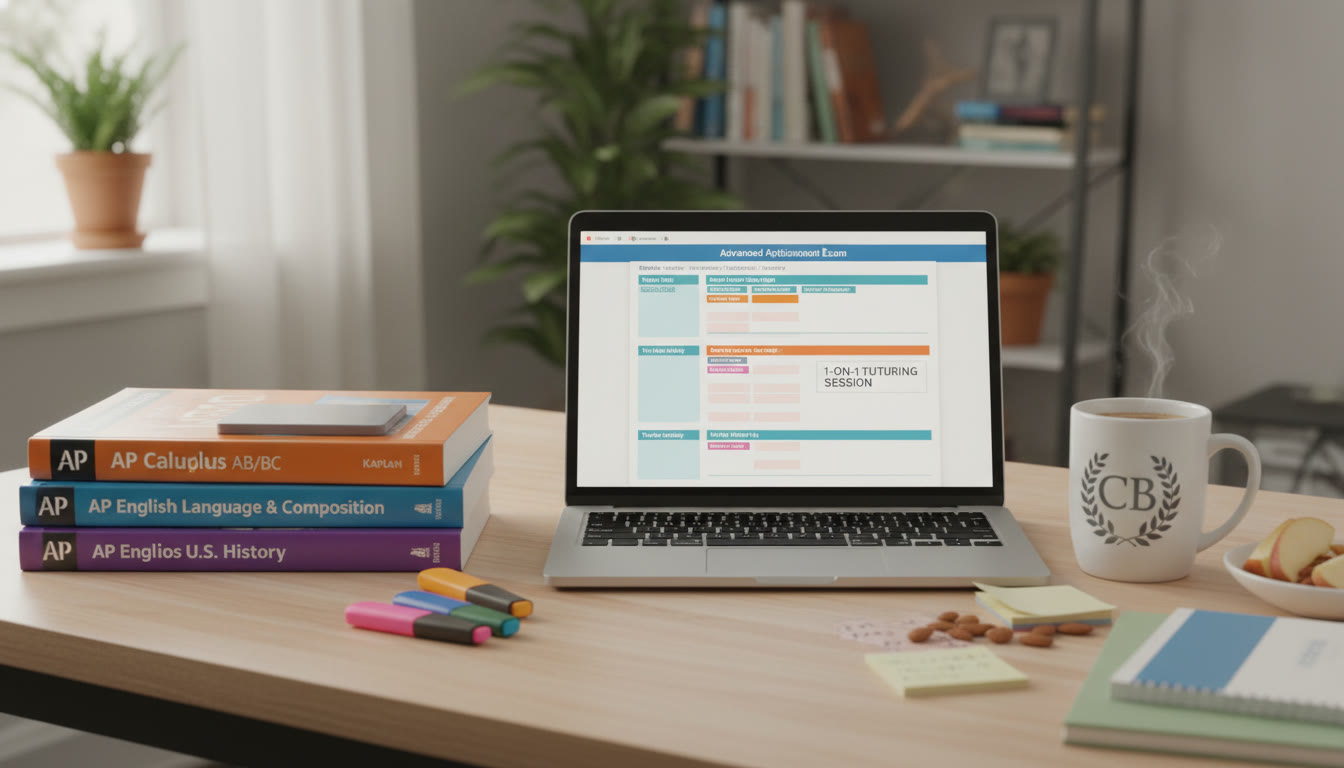Why This Matters: AP Exams, UCLA General Education, and Your Major
If you’re aiming for UCLA — whether as a first-choice dream or a practical, well-researched option — understanding how AP (Advanced Placement) exams interact with UCLA’s general education (GE) pathways and your intended major can feel like decoding a secret language. It’s not just about getting a score on test day. AP results can shorten your required coursework, open space for a major’s advanced classes, let you pursue a minor or research early, and sometimes even influence transfer of credit and placement. But this benefit is nuanced: different departments treat AP credit differently, and how it affects your major’s prerequisites varies.
The Big Picture: Two Ways AP Helps You
Think of AP scores as doing two main jobs for you at UCLA (or any selective research university):
- Credit and placement: A qualifying AP score often translates into college credit, which can satisfy lower-division requirements or general education units.
- Acceleration in your major: Strong AP results may let you skip introductory courses, so you can take upper-division classes earlier or free up your schedule for internships, research, or a second major.
Both outcomes are powerful, but they play out differently depending on the department, the major’s structure, and the specific AP exam and score.

How to Read the Interaction: Three Practical Lenses
When you’re planning which AP exams to take, and what scores you actually need for UCLA, think through three lenses:
1. General Education (Breadth) Impact
Many universities accept AP scores to satisfy parts of their GE or breadth requirements — for example, humanities, social sciences, or quantitative reasoning. If a particular AP exam maps to a GE requirement, that can reduce the number of general education courses you must take in your first two years.
Why this matters: If you can check off GE boxes early, your schedule becomes flexible. That flexibility is gold for students aiming to start research early, participate in intensive internships, or take a heavier major load.
2. Major Prerequisite and Placement Impact
Departments differ. Some will accept AP scores as direct substitutes for introductory course sequences; others may grant placement (you can enroll directly into the next course) without awarding the actual units.
Example scenarios:
- For a STEM major, a high score on AP Calculus BC might let you place into Multivariable Calculus or Linear Algebra faster — but some engineering departments may still require an initial in-person course for foundational lab work or problem-solving pedagogy.
- For a language or humanities major, AP language exams could let you skip elementary and intermediate language courses and begin in an advanced conversation or literature class.
3. Degree Progression and Long-Term Strategy
Use AP credit to think ahead: do you want to graduate early, double-major, or pursue an honors thesis? AP credit can be a launchpad for those ambitions, but it requires planning.
- If you’re aiming for early major research, your priority should be using AP to clear prerequisites that gatekeep lab or seminar entry.
- If you want to audition for selective programs (film, design, music), AP credit may not replace required portfolio courses — but it can free time to prepare a stronger portfolio.
How to Make Decisions: A Step-by-Step Planning Checklist
Here’s an actionable roadmap for students (and parents) who want to translate AP success into meaningful advantages at UCLA.
Step 1: Identify Your Intended Major and Its Gatekeepers
- List the introductory courses required by that major.
- Highlight any lab or studio components that AP exams can’t replace.
- Find out if departments allow AP for placement only, credit only, or both.
Step 2: Map AP Exams to GE Categories and Major Requirements
Some AP exams map cleanly to GE categories (e.g., AP English Language to a communication or writing requirement), while others are treated as elective credits. Use the College Board’s AP credit policy search early in your planning to see where each AP exam commonly falls. Remember: institutional policy varies — the college or department has the final say.
Step 3: Prioritize Which Exams to Take and What Scores to Aim For
Not all AP exams produce equal return for a UCLA-bound applicant. Prioritize:
- AP exams that are direct prerequisites for your major.
- AP exams that carry a lot of units (e.g., Calculus BC can often grant multiple semester credits).
- AP exams where you can realistically achieve a 4 or 5 with focused preparation.
Step 4: Plan a Score-Delivery Timeline
Order score sends thoughtfully. If you’re a senior, make sure your AP scores are sent by the deadlines your college requires for awarding credit. For freshmen, check whether a deadline exists for receiving AP scores before enrollment decisions on freshman advising and course enrollment are finalized.
Practical Examples: How AP Choices Can Shape Your UCLA Experience
Below are illustrative, realistic scenarios to help anchor the theory in the everyday. These aren’t policy quotes — they’re examples of how students commonly use AP credit at selective research universities.
| Student Profile | AP Exams & Typical Scores | How This Helps With GE and Major Prep |
|---|---|---|
| Prospective Biology Major | AP Biology (4), AP Chemistry (3 or 4), AP Calculus AB (4) | Possible placement into sophomore-level biology courses, reduced intro chemistry requirements, and faster to quantitative prerequisites; more time for lab research or volunteering. |
| Intending English Major | AP English Language (5), AP English Literature (4) | GE writing and literature requirements may be satisfied; can begin upper-division seminars earlier; frees schedule for creative writing workshops or study abroad. |
| Undecided STEM Student | AP Calculus BC (5), AP Physics C (4) | Strong math/physics placement allows taking advanced electives that clarify major interest; reduces need to repeat intro courses. |
Common Questions Students Ask — With Straightforward Answers
Will AP credit let me skip all general education requirements?
Not usually. AP credit can satisfy some GE categories, but universities often have residency requirements or major-specific core courses you must take on campus. AP is a head start, not a bypass of the university experience.
If I earn AP credit, will my GPA be affected?
AP credit typically affects unit totals and placement, but many universities do not assign GPA points for transferred AP credits. That means AP credit can help accelerate your progress without altering your college GPA — a mixed blessing that you should factor into honors and scholarship calculations.
Can AP credit backfire?
Rarely, but sometimes. If you place out of introductory coursework, you may miss out on foundational teaching styles or cohort bonds that freshman courses create. Also, taking upper-division courses too early could expose you to gaps in college-level expectations. Balance is key: placement is powerful if you’re academically ready and supported.
Actionable Study Strategy: Turn Your AP Prep into Long-Term Gains
Getting a 4 or 5 on an AP exam is both a short-term achievement and a long-term strategic move. Here’s a study plan that’s realistic, evidence-based, and mindful of college goals.
12 Weeks Out: Map, Commit, and Build Routine
- Create a mapping sheet showing which AP exams matter most for your intended major and which UCLA requirements they might satisfy.
- Block study time: 5–10 focused sessions per week, with short active recall sessions mixed with practice exams.
6 Weeks Out: Practice Tests and Gap-Focused Work
- Take at least two full-length practice exams under timed conditions.
- Analyze missed items and convert them into targeted practice sets.
2 Weeks Out: Intensity and Refinement
- Focus on weak areas with short, high-yield reviews and practice problems.
- Simulate testing logistics to reduce day-of stress (device check if digital, timing, snacks, breaks).
Why Tutoring Helps — And How to Use It Well
Personalized tutoring can accelerate learning by focusing on your unique gaps and target score. If you choose 1-on-1 guidance, prioritize tutors who can:
- Create a tailored study plan based on diagnostic tests.
- Provide targeted practice problems and explain conceptual pitfalls.
- Offer test-day strategies and pacing drills.
For students preparing for UCLA, tutoring that understands both AP content and how AP maps to university requirements is especially valuable. Personalized platforms like Sparkl offer tailored study plans, expert tutors, and data-driven insights that can convert a few extra study hours into a higher AP score — and therefore a clearer path into advanced coursework.
Working with Advisors and Departments: How to Ask the Right Questions
Once you have AP scores, your next step is clear communication with campus offices. Use this script as a template.
Sample Questions to Ask Academic Advisors or Department Staff
- “Which AP exams and minimum scores satisfy GE categories or major prerequisites for my intended major?”
- “Does AP credit grant units, placement, or both for my major’s introductory courses?”
- “Are there residency or orientation requirements that AP credit does not waive?”
- “If I place into an upper-level course using AP scores, are there recommended resources to bridge any content gaps?”
Record answers and follow up in writing (email) so you have documentation when you enroll in classes.
Sample Four-Semester Roadmaps: How AP Credit Changes Early College Years
These condensed roadmaps show two plausible paths through the first two years depending on whether AP credit covers key prerequisites. They’re simplified but reveal strategic differences.
| Scenario | Year 1 | Year 2 |
|---|---|---|
| AP Credit Covers Key Prereqs | Enroll in intermediate major courses, one GE seminar, elective or research methods course. | Upper-division electives, directed research, internship, or study abroad. |
| No AP Credit / Low Scores | Take foundational major sequences, core GE courses, and introductory lab work. | Complete prerequisites; start upper-division coursework in late Year 2; seek research positions in summer. |
Tips for Parents: How to Support Without Overstepping
Parents play a crucial role in creating structure and perspective. Practical ways to help include:
- Encourage a schedule that balances study, sleep, social time, and physical activity.
- Help with logistics: arranging practice-test days, securing resources, and facilitating tutor sessions if needed.
- Promote reflection: after each practice test, discuss what went well and what to adjust, rather than focusing only on scores.
When to Use Professional Help (And How to Choose It)
Consider professional tutoring if:
- Your student needs structure and accountability to stay on a targeted study plan.
- There are persistent concept gaps holding back practice test improvements.
- Your timeline is tight and you need efficient, high-impact interventions.
Choose tutoring with demonstrable experience in AP content and in translating AP preparedness to college placement. A good tutoring program will offer diagnostic testing, a data-driven plan, and practice under timed conditions. Personalized services like Sparkl combine expert tutors, 1-on-1 guidance, and AI-driven insights to tailor study plans — useful when you want a plan that aligns AP prep with UCLA’s expectations.
Final Advice: Be Strategic, Not Just Strategic About Scores
AP scores are a tool, not the whole toolbox. The real advantage comes from integrating AP outcomes into a thoughtful academic plan that considers major prerequisites, GE requirements, and long-term goals like research, internships, and academic exploration. Use AP credit to buy opportunities — not to skip formative experiences that build skill and community.
Short Checklist Before You Submit Scores to UCLA
- Verify which AP scores UCLA accepts for credit or placement for your intended major.
- Confirm institutional deadlines for receiving scores for credit/placement.
- Plan your fall schedule based on the placement you expect — and have backup plans if the university interprets AP credit differently than you anticipated.
Parting Thought
Preparing for UCLA is more marathon than sprint. AP exams are one of the most impactful sprints you’ll run during high school when applied to a long-term strategy. With disciplined preparation, clear communication with advisors, and occasionally smart support from tutors and personalized platforms like Sparkl, AP success can transform your freshman year from a scramble for prerequisites into a launchpad for meaningful academic growth. Aim for the score you want, but plan for the experience you hope to have — that’s how AP becomes more than a test; it becomes the start of your college story.

Good luck — and remember: a high AP score is valuable, but how you use it at UCLA will decide how far it takes you. Reach out to advisors early, keep an adaptable plan, and let every AP exam be a step toward the opportunities you want to pursue on campus.

















No Comments
Leave a comment Cancel